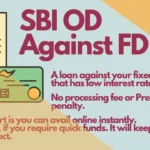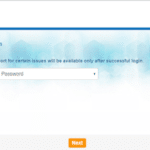Do you know your WiFi password can be hacked and used for criminal activities?
As we depend on most of our daily activities on internet service, setting a strong security protocol for our WiFi network is a must. When you have a weak security network, there is a high chance hackers will gain access to it easily and use it with malafide intentions.

Having a weak password is like giving them an open invitation. In today’s digital age, a WiFi password is like a key to your home. You would not prefer leaving it open, would you?
In this article, we will discuss some of the surprising ways hackers can easily crack your WiFi password, which would leave you compromising your personal details.
On the bright side, you can protect yourself from unauthorized access with some of our useful tips and tricks.
Common mistakes in WiFi password creation
It’s seen that most of us make our WiFi passwords simple and easily guessable. For instance setting passwords such as 123456, password. Yes, it is very convenient as you can remember easily but at the same time, it’s an open invitation to the hackers too.
Another common mistake is using personal information as a password. These can be your date of birth, phone number, and address as a password.
This personal information can be easily obtained by any person through social media platforms such as Facebook, Instagram etc.
You would get every personal detail of the person. What does he do? What does he like? Where he stays? What is his date of birth? In fact, any details you want. And scammers use these tactics to get a bit about you. Ultimately, it enables them to guess your password easily.
To avoid these common mistakes, it’s preferably better if you make your WiFI password structure with a combination of case-sensitive letters, numbers and special characters of at least 12 characters.
And remember, changing passwords regularly is a good practice that helps in securing your WiFi password or any other passwords.
Common methods hackers use to crack WiFi passwords
There are several ways hackers use to crack your WIFi passwords. These may include brute-force attacks, dictionary attacks and phishing attacks.
Brute-force type of attacks involves trying every possible combination of password characters until it’s discovered or cracked. Though the process is time-consuming brute-force attack is very effective if the password is weak.
Another commonly used method is the dictionary attacks that involve using a pre-computed list of commonly used words.
Like for example if you keep the WiFi password as Awesome@123. The method is faster than brute-force attacks and effective if your password is a commonly used word.
Phishing is one such method used widely by hackers and fraudsters to extract personal details of any sort.
It involves sending links to hook the victims and tricking them into revealing their user credentials such as passwords. Hackers are even able to extract Internet banking passwords or ATM PINs with this method.
The victim shares the details thinking they are sharing with a legitimate entity or organization.
Social engineering and WiFi password cracking
Social engineering is a method used by hackers which involves the manipulation of people into revealing their sensitive information.
In the process, hackers can be posing as a technician or a customer service representative of a legitimate entity.
These social engineering tactics used by fraudsters can be easily avoided if you understand how this work.
Knowing some basics on this, you can easily identify the attacks and take appropriate measures to avoid financial losses.
For instance, if an unknown person contacts you to serve you that involves sharing sensitive information, you should check out his credential with the service provider. Only when it’s confirmed you should go forward.
Sharing sensitive information such as passwords to access your network, and allowing remote access to your system pose substantial risks. If required, ask the service provider to visit your place and fix the issue.
As such, it’s always advisable not to share these credentials and make your personal information private and confidential. Also, making yourself aware of what to share on social media platforms as well is a plus point.
The dangers of weak WiFi passwords
Having weak WiFi passwords poses a higher risk to your internet network security. You should be confident that your password is un-hackable.
Suppose hackers gain access to your network, not only personal information that they can steal. They can leave you devastated with the installation of malware in your system that corrupts your data or they can use your network to commit illegal activities.
How to create a strong WiFi password
One must keep a strong WiFi password. It is essential as it would protect your network from unauthorized access.
What password is considered a Strong Password in general?
Generally, a password is considered strong when you have all these characters- case-sensitive letters, numbers and special characters. Any password that you create should be preferably 12 characters long. These characters should be random and unrelated to you.
Preferably use random letters and numbers. Your personal information can be easily found on many media. That’s the reason why you should not use them when creating a password. Avoid using date of birth, phone number and others that can be easily found or guessed.
When setting a password, try to stay away from using common words too. Or with dictionary attacks, it would be easily cracked.
Sometimes using a password generator comes in handy. It would generate any random password that is kind of hard to crack.
Moreover, using a password manager will keep you updated and remind you to change them at regular intervals.
Tools to protect your WiFi network from password cracking
A Handful of password management tools provide excellent services. These tools help you protect your WiFi password efficiently.
A window firewall is used to block any harmful activity or access to your network. It can also monitor your network traffic and alert you of any suspicious activity. It enables you to take action in time.
Presently, VPN- Virtual Private Networks is widely used among the internet surfer. The VPN masks your internet traffic with data encryption technology. Your online presence is totally protected with VPN.
Using VPN is one of the most effective ways to secure your network. It may cost you monthly or annual subscription rental fees. There are free versions too, but using the paid version is better as it gives more services with strong network connectivity.
Updating your WiFi router firmware and security settings
To get your WiFi network fully protected, updating WiFi router firmware is a must. Security settings should be updated from time to time to get a secured line.
These would run updates that fix security vulnerabilities as well as add new security features.
As such, checking your WiFi router manufacturer’s website is important. When there is a fresh update rollout, waste no time and install the update as soon as possible.
WiFi password sharing and its security implications
It’s advisable not to share your WiFi password with friends and family. It can lead to a security breach.
If you share, let them use it as per your instruction. Giving out or sharing passwords means allowing another person to access your network. If not used carefully, things might turn bad and your WiFi network may expose to security risks.
There’s always a way to address this issue. You can create a guest network for your visitor. Not allowing them to use the internet service seems odd, you know! But with a guest network, you might not feel bad at least.
A guest network allows you to let your visitors or any other family members use the internet service without compromising your WiFi password.
Conclusion and final thoughts
In conclusion, securing your WiFi network is essential to protect your personal information and keep your network running smoothly.
In today’s digital age where frauds, cybercrimes and related activities are on the rise, you should keep WiFi passwords or any sort of login credential to be strong and uncrackable.
Various tools such as firewalls and VPNs are the need of the hour. In addition to this, you should update your router firmware and check your security settings once in a while.
These are crucial steps that will enable you to protect your system and network efficiently.
Other than these, you should know the basics of various online frauds which include using social engineering tactics. With these tips and with a little precaution, you can always stay ahead of any fraudster and secure personal information and money.








